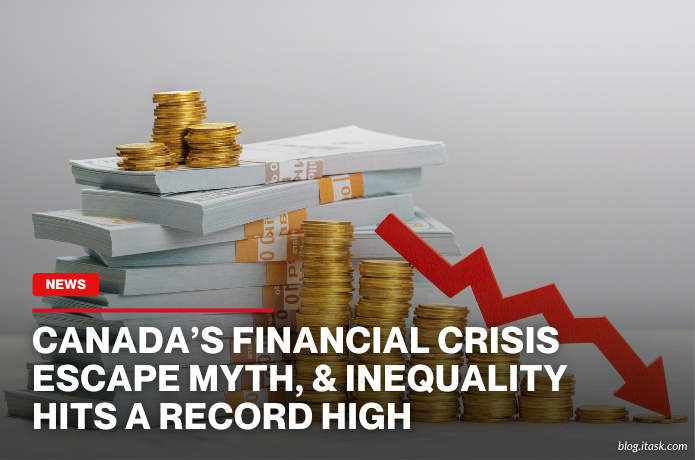Canada’s Financial Crisis Escape Myth, & Inequality Hits A Record High
Canada’s Financial Crisis Escape Myth, & Inequality Hits A Record High

Canada's reputation for sidestepping the 2008 financial crisis has been challenged by recent analyses. According to Better Dwelling, the belief that Canada escaped the crisis unscathed is misleading. Instead of a swift economic downturn, the country experienced a prolonged period of financial strain, with households absorbing the impact through increased debt and stagnant productivity.
Comparisons with Australia, a nation with similar economic structures, highlight Canada's unique challenges. While both countries faced the global financial crisis, Australia's economy rebounded more robustly. Canada's approach, which involved shifting financial burdens onto households, has led to long-term economic drag and diminished productivity.
Concurrently, income inequality in Canada has reached unprecedented levels. The disparity between the top and bottom 40% of households has widened significantly, making social mobility increasingly difficult. This growing gap undermines the principle that hard work leads to upward mobility, fostering disillusionment among many Canadians.
The housing market plays a pivotal role in this economic landscape. Soaring property prices have made homeownership unattainable for many, while those who entered the market during low-interest periods now face the strain of rising mortgage rates. This situation exacerbates financial pressures on middle and lower-income families, further entrenching economic disparities.
Experts warn that these trends could have lasting implications. The combination of high household debt, limited economic mobility, and an overreliance on the housing sector poses risks to Canada's long-term economic stability. Without strategic interventions, the nation may face challenges in fostering inclusive growth and ensuring financial resilience.
Addressing these issues requires comprehensive policy responses. Investments in affordable housing, measures to reduce household debt, and initiatives to enhance productivity are essential. By confronting these challenges head-on, Canada can work towards a more equitable and sustainable economic future.
